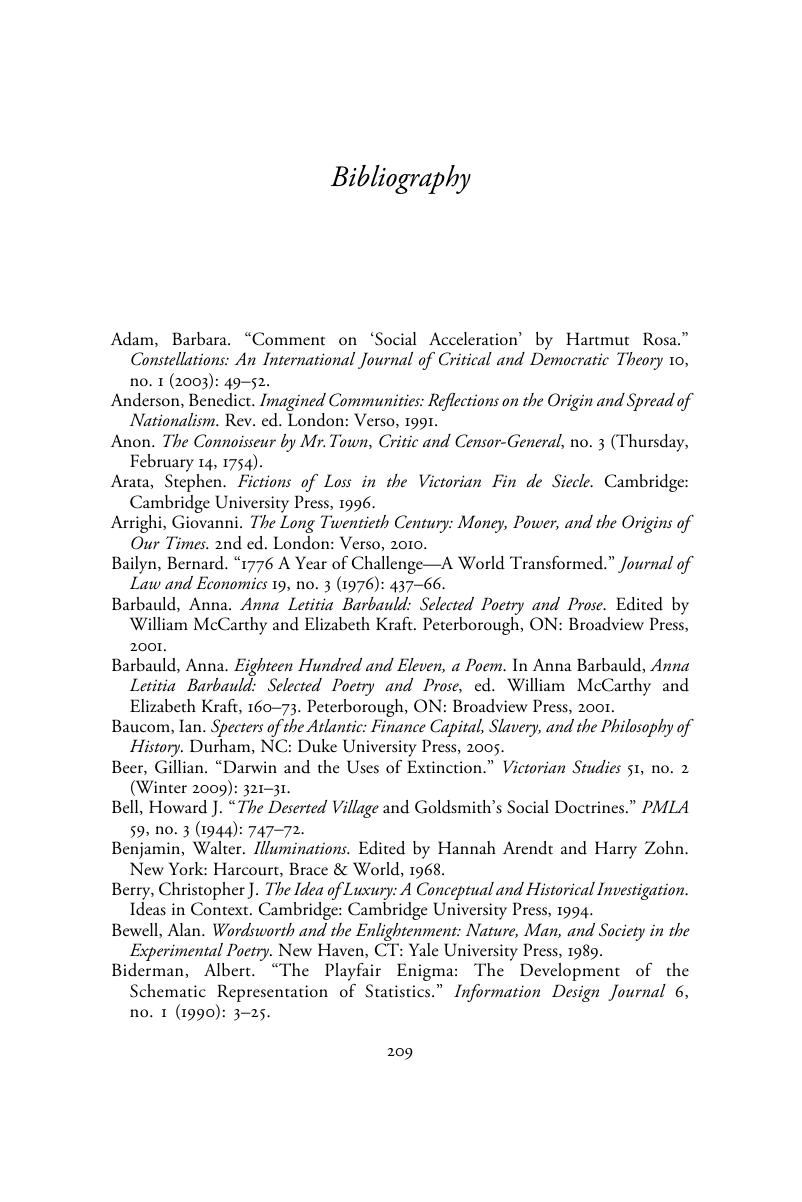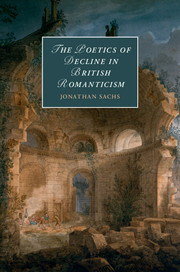Book contents
- The Poetics of Decline in British Romanticism
- Cambridge Studies in Romanticism
- The Poetics of Decline in British Romanticism
- Copyright page
- Dedication
- Contents
- Figures
- Acknowledgments
- Abbreviations
- Introduction
- Chapter 1 From Morals to Measurement: Scaling Time, Anticipating the Future, and Quantifying Decline in Gibbon, Smith, and Playfair
- Chapter 2 The Decline of Literature: Acceleration, Print Saturation, and Media Time
- Chapter 3 The Politics of Prediction: Anna Barbauld and the Ruins of London
- Chapter 4 On Ruins: Contingency, Time Parallax, and “The Ruined Cottage”
- Chapter 5 Coleridge’s Slow Time
- Chapter 6 Fast Time, Slow Time, Deep Time: Decline, Extinction, and the Pace of Romanticism
- Notes
- Bibliography
- Index
- Cambridge Studies in Romanticism
- References
Bibliography
Published online by Cambridge University Press: 06 January 2018
- The Poetics of Decline in British Romanticism
- Cambridge Studies in Romanticism
- The Poetics of Decline in British Romanticism
- Copyright page
- Dedication
- Contents
- Figures
- Acknowledgments
- Abbreviations
- Introduction
- Chapter 1 From Morals to Measurement: Scaling Time, Anticipating the Future, and Quantifying Decline in Gibbon, Smith, and Playfair
- Chapter 2 The Decline of Literature: Acceleration, Print Saturation, and Media Time
- Chapter 3 The Politics of Prediction: Anna Barbauld and the Ruins of London
- Chapter 4 On Ruins: Contingency, Time Parallax, and “The Ruined Cottage”
- Chapter 5 Coleridge’s Slow Time
- Chapter 6 Fast Time, Slow Time, Deep Time: Decline, Extinction, and the Pace of Romanticism
- Notes
- Bibliography
- Index
- Cambridge Studies in Romanticism
- References
Summary

- Type
- Chapter
- Information
- The Poetics of Decline in British Romanticism , pp. 209 - 220Publisher: Cambridge University PressPrint publication year: 2018



